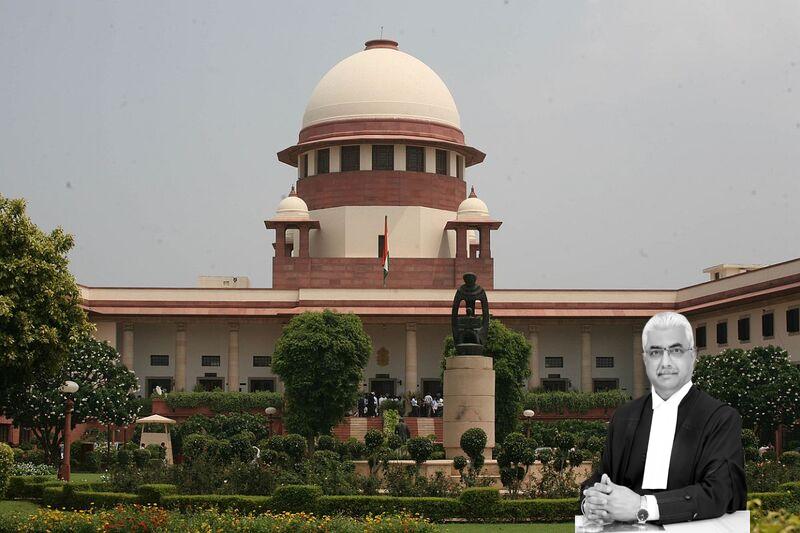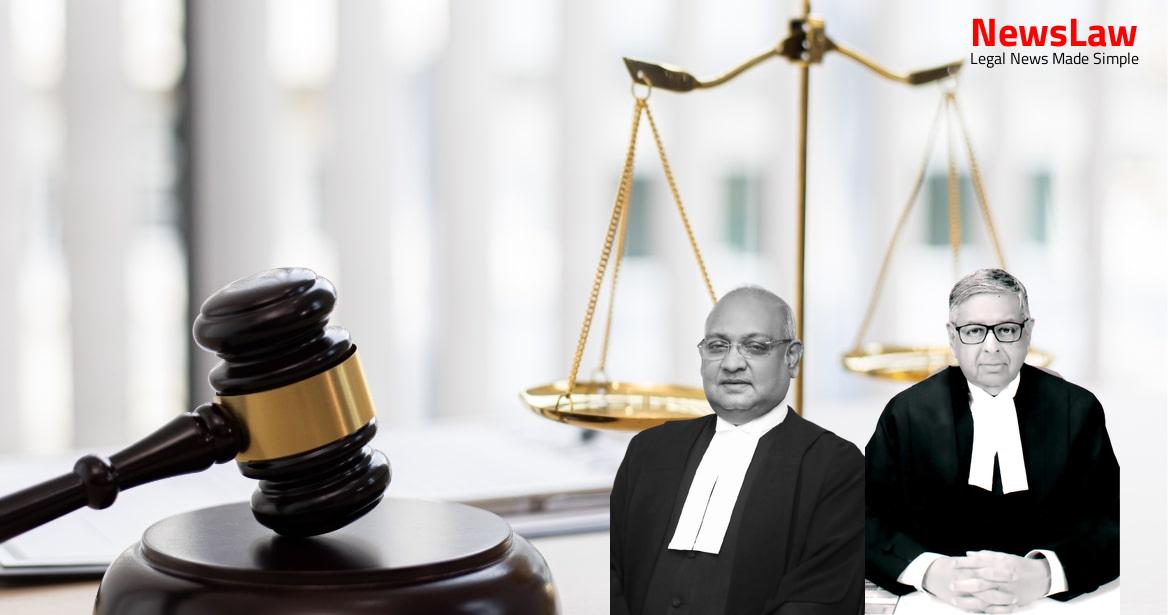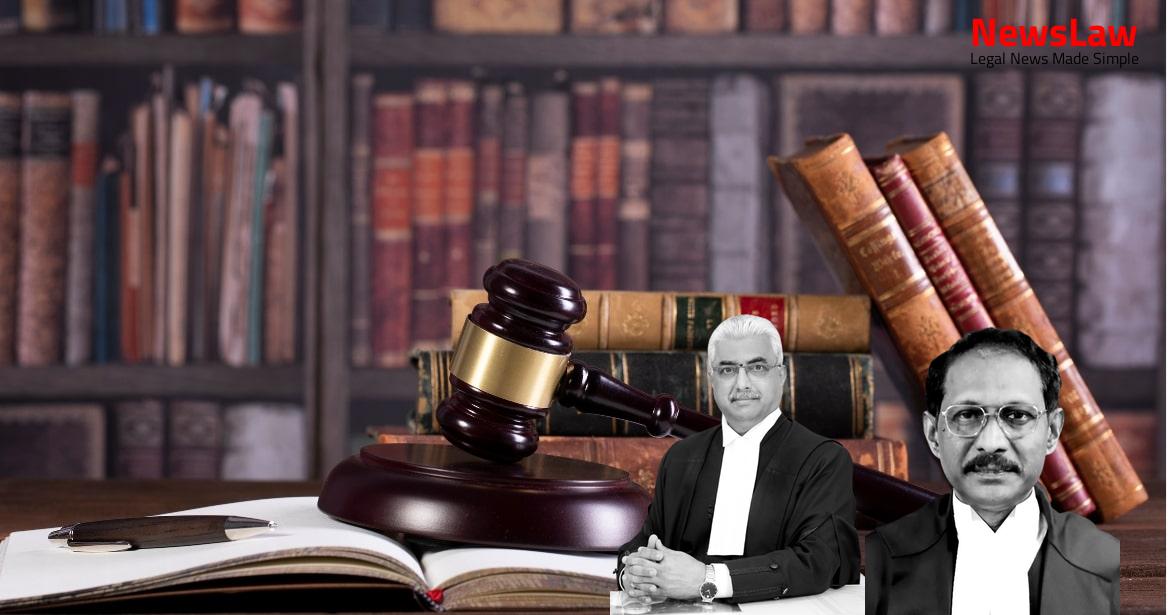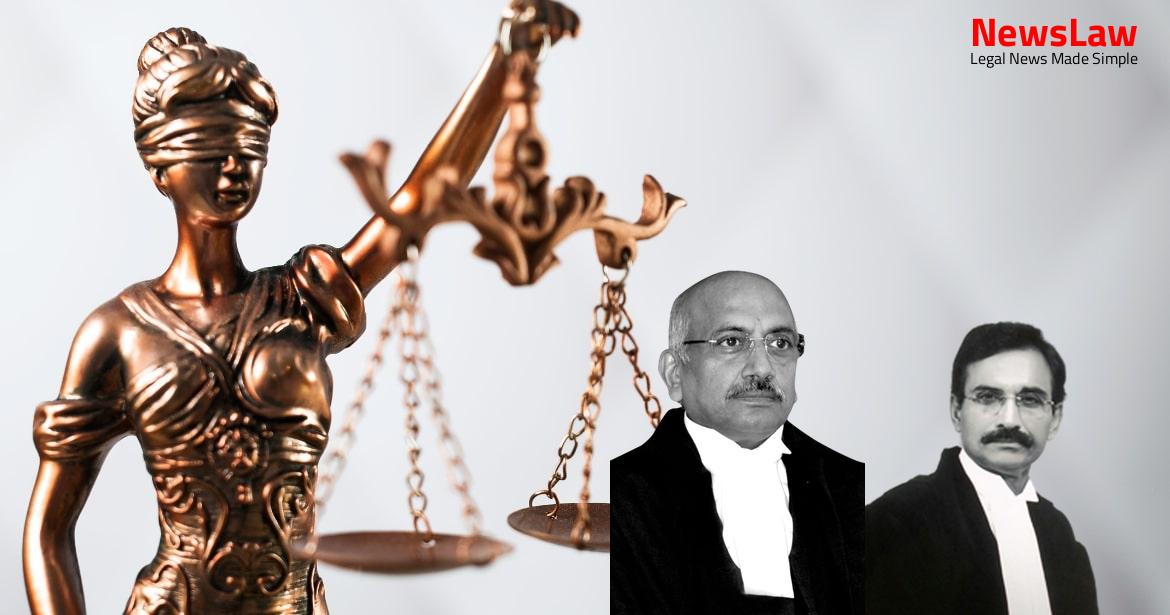The petitioner approached this court on the ground that they have reason to believe that the Union of India will unilaterally appoint the Chief Secretary in the exercise of the power under Sections 41 read with 45A(d) read with 45H(2) of the Government of National Capital Territory of Delhi Act 1991 as amended by the Government of National Capital Territory of Delhi (Amendment) Act 2023.
The Legislative Assembly of NCTD has the competence to enact laws for the whole or any part of NCTD in respect of matters enumerated in the State List or Concurrent List insofar as such matters are applicable to Union territories except matters with respect to Entries 1,2, and 18 of the State List and Entries 64,65, and 66 of the State List insofar as they relate to Entries 1 (public order), 2 (police), and 18 (land) of the List ; b.
The second decision of the Constitution Bench (2023 Constitution Bench judgment) specifically dealt with control over “services” pertaining to the National Capital Territory of Delhi (NCTD).
Drawing upon the principles in Articles 73 and 162, the 2023 Constitution Bench held that on entries over which Parliament also has legislative competence, the executive power shall ordinarily lie with NCTD. After the judgment of the 2023 Constitution Bench, the President in the exercise of powers under Article 123 of the Constitution promulgated the Government of National Capital Territory of Delhi (Amendment) Ordinance 2023 by which a provision was included in the GNCTD Act 1991 excluding the legislative competence of the NCTD over Entry 41 of the List II. In terms of sub-Section (2) of Section 45E, the Authority shall consist of the Chief Minister of NCTD, the Chief Secretary of GNCTD, and the Principal Home Secretary of GNCTD. The provisions of Section 45A(d) contain only a definition of the expression “Chief Secretary” and cannot be construed to be a substantive provision governing the appointment of the Chief Secretary by the Central Government; c.
Rules 1958, an extension to a member of the All India Service holding the post of Chief Secretary to a State Government can be granted for a period of not more than six months “on the recommendations made by the concerned State Government with full justification and in public interest with the prior approval of the Central Government” ; f. Extensions have been granted in the previous 12 months alone to the Chief Secretaries in the States of West Bengal, Rajasthan, Uttar Pradesh and Madhya Pradesh, as set out in the table extracted below : Name of the Officer Serving as Chief Secretary State/ Union Territory Date of superannuation Period of Extension Granted HK Dwivedi, IAS (WB:1988) West Bengal 30.06.2023 06 Months (from 01.07.2023 to 31.12.2023) Usha Sharma, IAS (RR: 1985) Rajasthan 30.06.2023 06 Months (from 01.07.2023 to 31.12.2023) Varesh Sinha, IAS (GJ: 1977) Gujarat 30.04.2014 03 Months (from 01.05.2014 to 31.07.2014) 03 Months (from 01.08.2014 to 31.10.2014) Shri Rinchen Ongmu, IAS (SK: 1977) Sikkim 31.01.2015 03 Months (from 01.02.2015 to 30.04.2015) 03 Months (from 01.05.2015 to 31.07.2015) Shri Shakuntala Jakhu, IAS (HY: 1978) Rajiv Sharma, IAS (TG: 1982) Telangana 31.05.2016 03 Months (from 01.06.2016 to 31.08.2016) Shri Arvind Jadhav, IAS (KN: 1978) Karnataka 30.06.2016 03 Months (from 01.07.2016 to 30.09.2016)
Shri Rajesh Kumar Srivastava, IAS (AGMUT: 1984)
Goa 30.06.2016 03 Months (from 01.07.2016 to 30.09.2016) 03 Months (from 01.10.2016 to 31.12.2016) Shri S.P. Ratna Prabha, IAS (KN: 1981) Karnataka 31.03.2018 03 Months (from 01.03.2018 to 30.06.2018) Shri Basant Pratap Singh, IAS (MP: 1984) Madhya Pradesh 30.06.2018 06 Months (from 01.07.2018 to 31.01.2019) Shri Sudhir Tripathi, IAS (JH: 1985) Jharkhand 30.09.2018 03 Months (from 01.10.2018 to 31.12.2018) 03 Months (from 01.01.2019 to 31.03.2019) Shri Dinesh Kumar Jain, IAS (MH: 1983) Maharashtra 31.01.2019 06 Months (from 01.02.2019 to 31.07.2019)
Shanmugam, IAS (TN: 1985) Tamil Nadu 31.07.2020 03 Months (from 01.08.2020 to 31.10.2020) 03 Months (from 01.11.2020 to 31.01.2021) Shri Anil Mukim, IAS (GJ: 1985) Gujarat 31.08.2020 06 Months (from 01.09.2020 to 28.02.2021) 06 Months (from 01.03.2021 to 31.08.2021) Shri Alapan Bandopadhyay, IAS (WB: 1987 Sameer Sharma, IAS (AP: 1985) Andhra Pradesh 30.11.2021 06 Months (from 01.12.2021 to 31.05.2022) 06 Months (from 01.06.2022 to 30.11.2022)
Shri Durga Shanker Misra, IAS (UP: 1984) Uttar Pradesh 31.12.2021 01 Year (from 01.01.2022 to 31.12.2022) 01 Year (from 01.01.2023 to 31.12.2023) Shri Suresh Chandra Mahapatra, IAS (OD: 1986) Odisha 28.02.2022 06 Months (from 01.03.2022 to 31.08.2022) 06 Months (from 01.09.2022 to 28.02.2023) Dr. Usha Sharma, IAS (RJ: 1985) Rajasthan 30.06.2023 06 Months (from 01.07.2023 to 31.12.2023) Dr. Sukhbir Singh Sandhu, IAS (UD: 1988) Uttarakhand 31.07.2023 06 Months (from 01.08.2013 to 31.01.2024) c. The Government of India Allocation of Business Rules 1961 provide, in relation to the Union Ministry of Home Affairs, that : “(d) General Questions relating to public services in the Union Territories and service matters in so far as these fall within the purview of State Government relating to: (i) the officers of Indian Administrative Service and Indian Police Service serving in connection with the affairs of the Union Territories; (ii) NCT of Delhi, Andaman and Nicobar Islands, Lakshdweep, Daman and Diu and Dadra and Nagar haveli Civil and Police Services (DANICS and DANIPS); (iii) Pondicherry Civil and Police Services.” The submissions which were urged by the Solicitor General have been supplemented by Mr Sanjay Jain, senior counsel.
After the insertion of Article 239AA, a proposal for the appointment of officers to these four posts was invariably moved by the Lieutenant Government to the Central Government in the Ministry of Home Affairs in terms of Rule 55(2)(b) of the Transaction of Business Rules; e. In the absence of a law conferring upon it executive power relating to any subject in the State List, the executive power of the Union Government covers only matters relating to the three entries which are excluded from the legislative domain of NCTD; d. Two issues fall for the consideration of this Court: firstly, whether the Union Government has the unilateral power to appoint the Chief Secretary of NCTD; and secondly, whether the Union Government has the power to extend the service of the incumbent Chief Secretary.
Rule 11A of the 1954 Rules states that the power of the State Government, inter alia, under Rule 7 in relation to the members of the Service serving in connection with the affairs of any of the constituent States shall be exercised by the Government of that State, and State is defined to include Union Territory. The excluded subjects being ‘Police’, ‘Public order’ and ‘Land’, the Commissioner of Police and the Secretaries In-charge of the Home and Land Departments are specifically brought within the purview of those matters where the Lieutenant Governor has to make a prior reference to the Union Government. Likewise, while defining the powers and functions of the National Capital Civil Service Authority in Section 45H, officers who are serving in connection with any subject matter, either fully or in part, connected with Entries 1, 2 and 18 of List 2 are excluded specifically. The provision states that the Lieutenant Governor may act in his discretion: (a) on matters which are beyond the powers of the Legislative Assembly and where the President has delegated the powers and functions to the Lieutenant Governor in relation to such matters; and (b) on matters which by law require him to act in his discretion or where he is exercising judicial or quasi-judicial functions. The Lieutenant Governor while exercising the power under Rule 55(2)(b) is required to act at their discretion without the aid and advice of the Council of Ministers for the following reasons: a. The exercise of power by the Lieutenant Governor under Rule 55(2)(b) is subject to the control of the Central Government; c. Section 45A(d) defines the Chief Secretary to mean the Chief Secretary of the GNCTD “appointed by the Central Government”.
In the very nature of things, it would not be possible or for that matter practicable to divide these functions of the Chief Secretary or bifurcate them between those areas which fall within the domain of GNCTD and those which lie outside. The petitioners seek that the Court to appoint one of the five senior most officers from the pool of officers who are serving in the AGMUT cadre and who has had the experience of having served as the Chief Secretary in the Government of NCTD. On the other hand, an effort has been made on behalf of the Union Government to submit that in a case involving a joint cadre, the expression State Government must mean the Joint Cadre Authority and bearing in mind the Transaction of Business Rules 1961 of the Union Government, it is the Ministry of Home Affairs which alone would exercise jurisdiction on general questions relating to public services in the Union Territories and service matters pertaining to IAS and IPS officers serving in connection with the affairs of the Union Territories.
The provision does not make a distinction between the Chief Secretary serving in NCTD and the Chief Secretaries serving in other States though the procedure for the appointment of the Chief Secretary of NCTD is different from the procedure for the appointment of Chief Secretaries in other States in terms of the 1954 Rules read with the Transaction of Business Rules. Consequently, the restrictions which operate in relation to the grant of extension under Rule 16 of the 1958 Rules in relation to the Chief Secretary of one of the State Governments would not stricto senso apply in relation to the GNCTD. For the above reasons, we have come to the conclusion that at this stage, bearing in mind the principles which have been enumerated in the judgment of this Court in 2023 Constitution Bench judgment, and the subsequent developments which have taken place resulting in the enactment of the amendment to the GNCTD Act 1991, the decision of the Union Government to extend the services of the incumbent Chief Secretary for a period of six months cannot be construed to be violative of law. The Chief Secretary though appointed by the Central Government, must comply with the directions of the elected government over matters on which their executive competence extends. [Dr Dhananjaya Y Chandrachud]
Case Title: GOVERNMENT OF NCT OF DELHI Vs. UNION OF INDIA
Case Number: W.P.(C) No.-001268 / 2023



